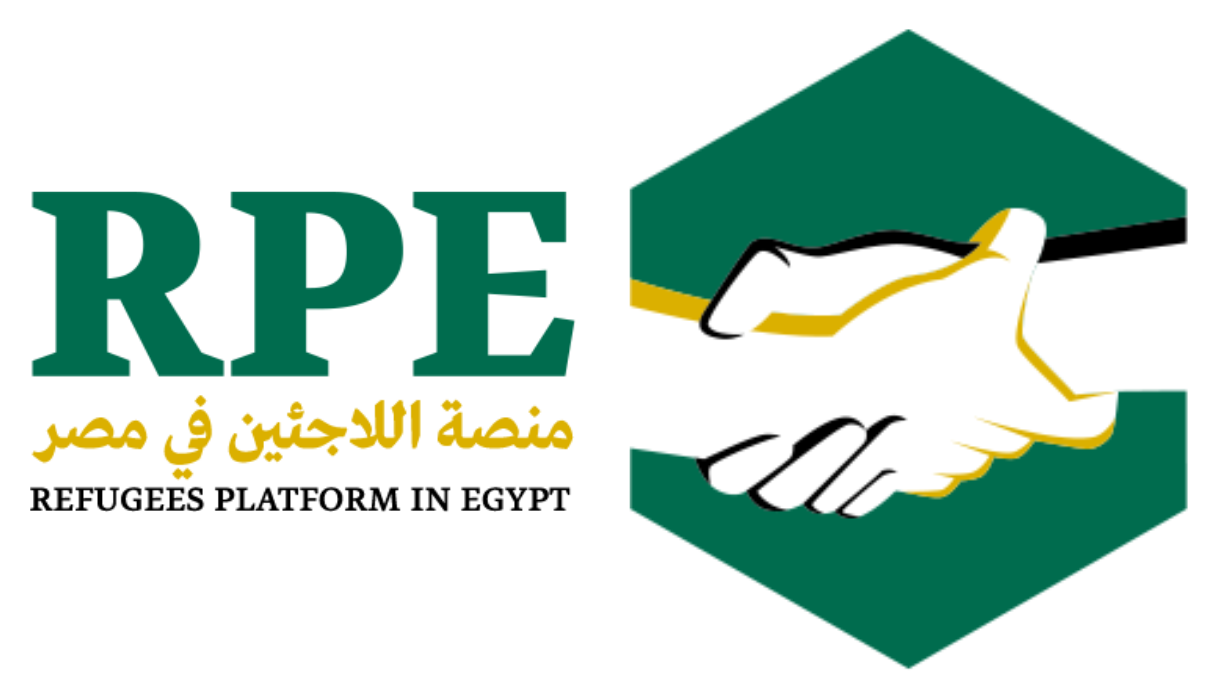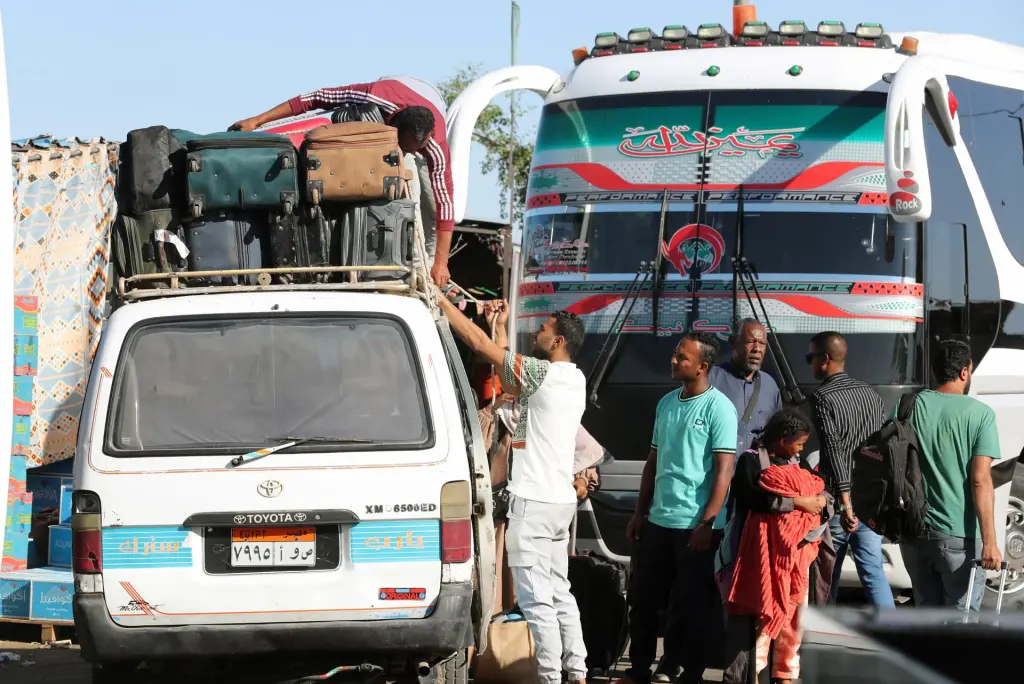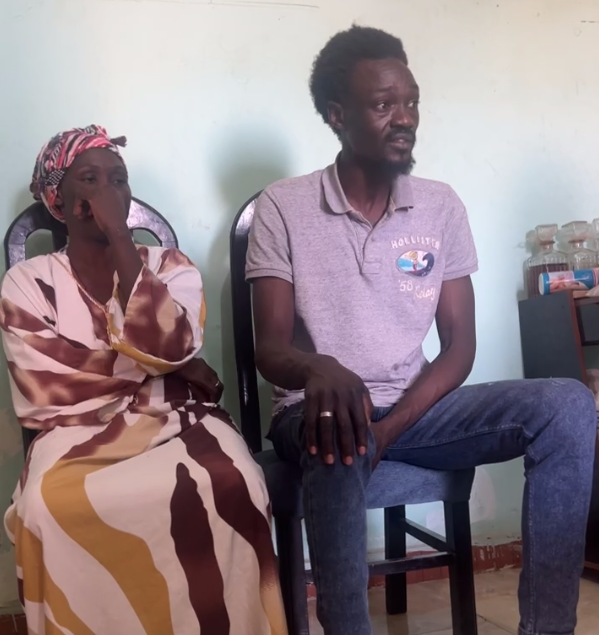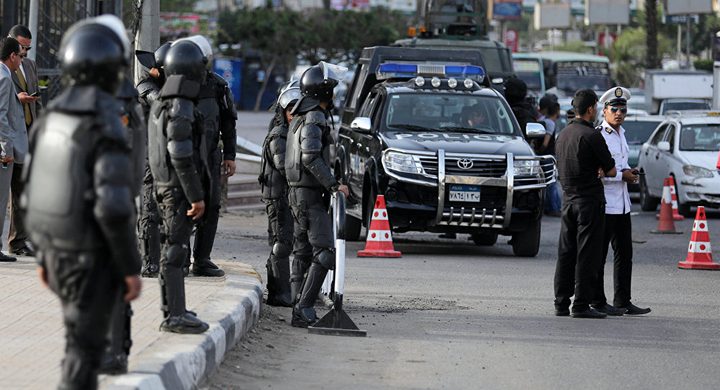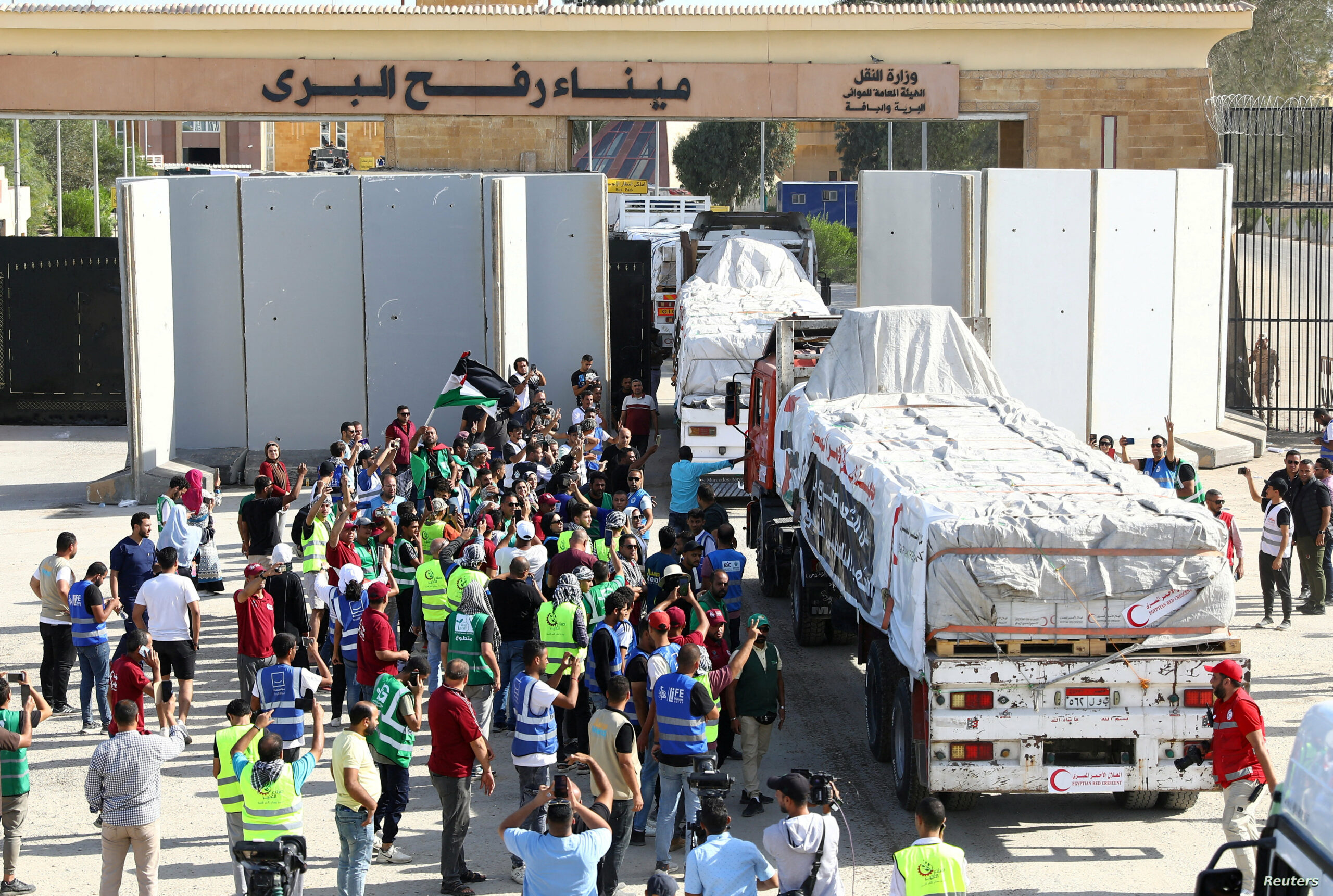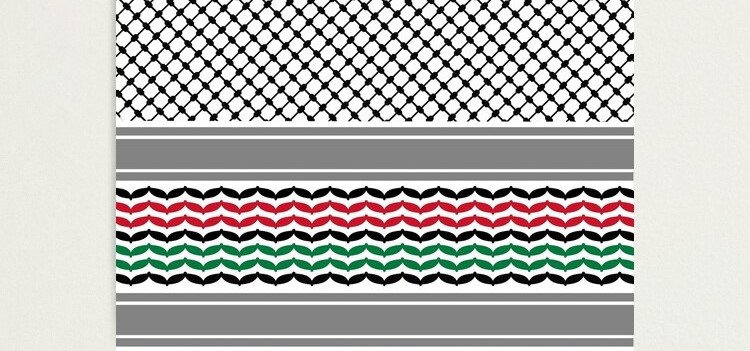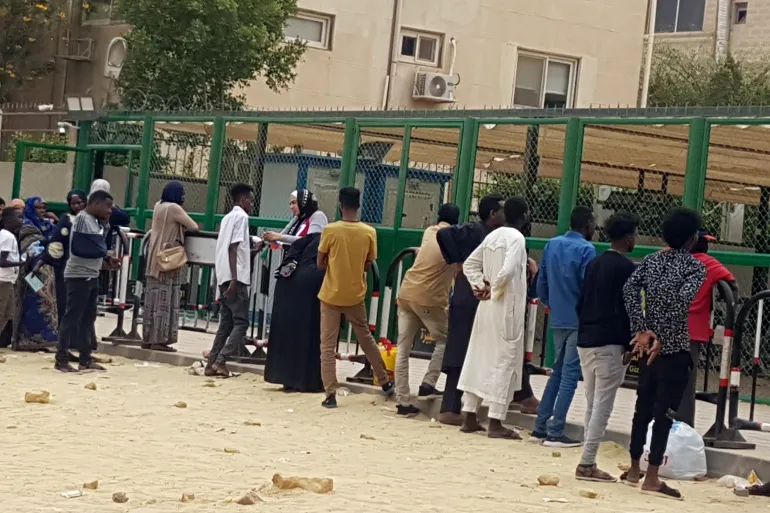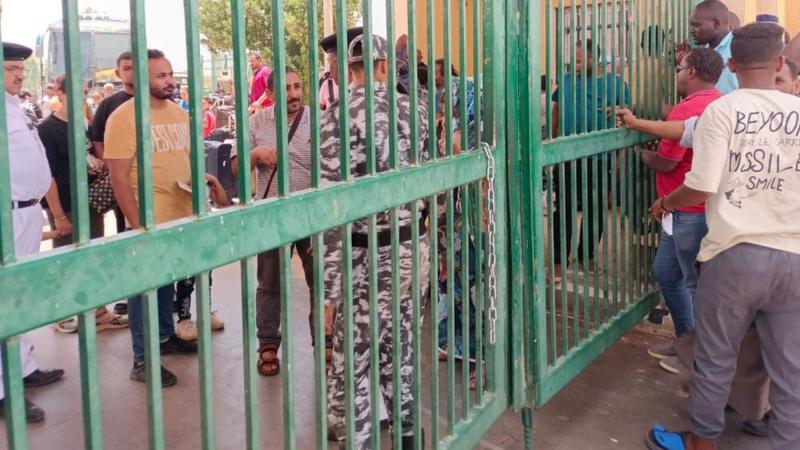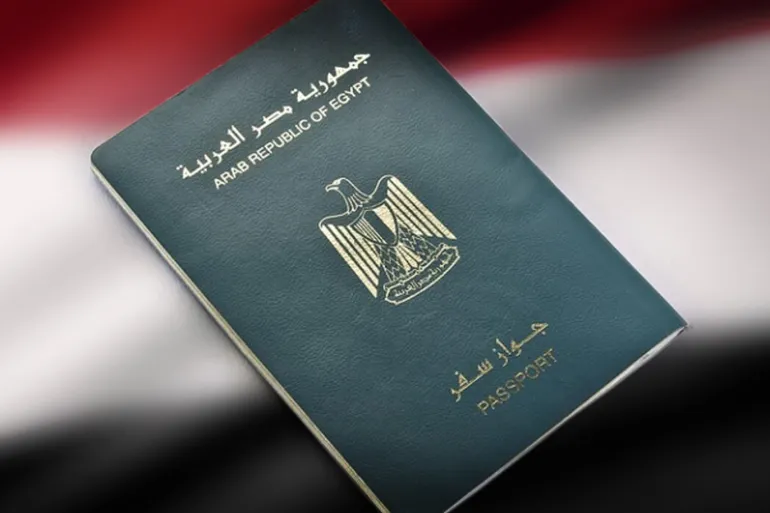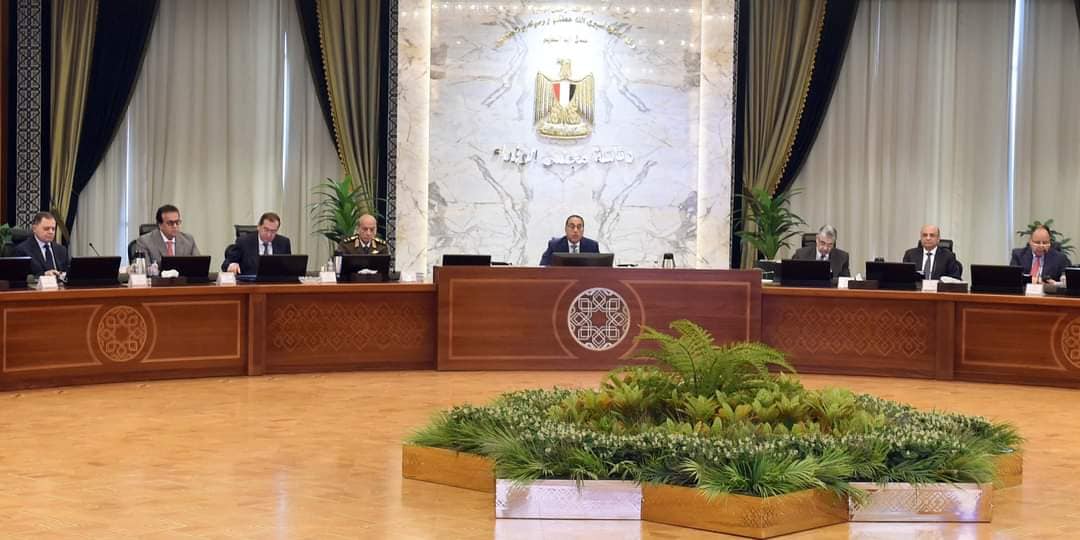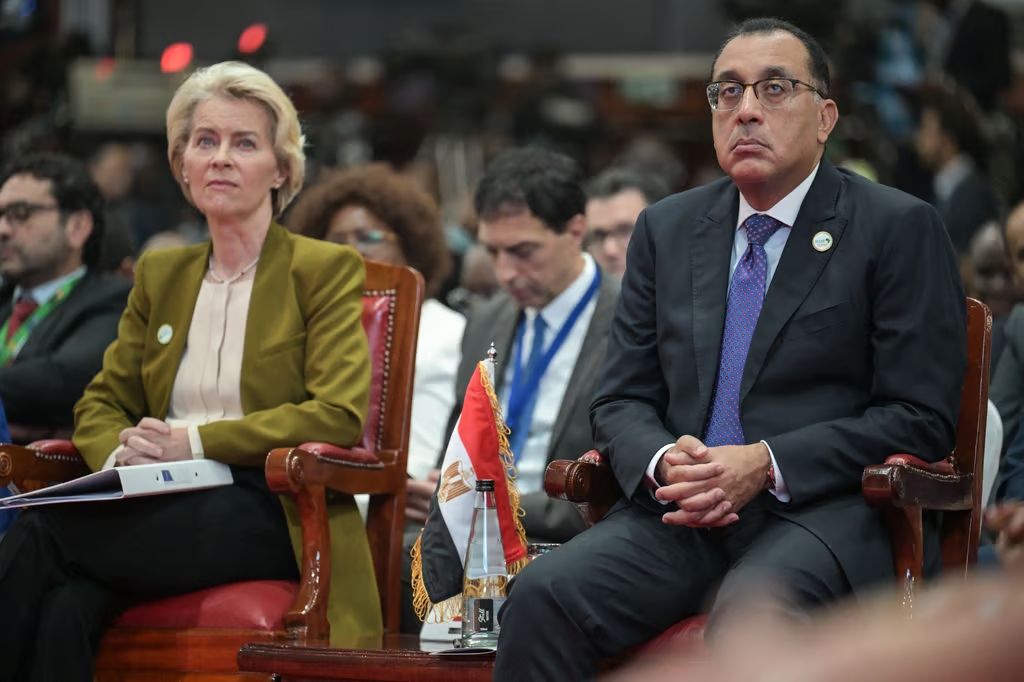Since we published the First status report In which we covered the developments in the conditions of movement and displacement from Sudan to Egypt for the period from 22 to the evening of April 26, 2023 in view of the ongoing forced displacement movement as a result of the armed conflict, conditions have not changed positively and unfortunately, we continue to witness a humanitarian catastrophe faced by civilians as the armed conflict continues in Sudan.
Ongoing crowding at the Sudanese border crossings with neighboring countries, and the situation for refugees and asylum seekers in Sudan has deteriorated to a terrible state. There are no services available on the Sudanese side of the crossings, and the conditions, procedures, and requirements for access have not been officially stated. Transit procedures to Egypt are slow on both sides, and only the Egyptian side has media coverage. Coordination between UN agencies in Egypt has just started, and several Egyptian government institutions have started making formal comments. People who are trapped are still being evacuated, and there have been complaints about passports being held in foreign embassies after staff members have left and the doors have been shut.
Hundreds of thousands of people, including Sudanese and other nationalities stranded inside Sudan, remain in dire need of safe passage, safe shelters, and urgent relief due to the armed conflict and lack of food, water, medicine, shelter, vital facilities, and other necessities. High prices for all services and needs increase this suffering.
The displaced suffer a terrifying and difficult experience during their displacement within the country and to neighboring countries. There are still problems communicating with their relatives, and the difficulties are exacerbated by the constant interruptions in electricity, communication services and the Internet. Refugees and asylum-seekers need international and global intervention to provide them with relief due to the closure of international organizations’ offices inside Sudan.
Official information on reliable services and transit conditions to neighboring countries should be made available to all categories of displaced persons. Those on the move require receiving points for asylum requests, as well as an immediate international rescue strategy for those who are stranded and displaced both inside and outside.
1) The situation of the displaced and stranded inside Sudan:
We monitored an acute shortage of food, water, medicine and basic needs, continuous interruptions in electricity, communication and internet services, distress from refugees and asylum seekers inside Sudan, foreign embassies closed their premises and withheld passports of Sudanese citizens inside, testimonies and reports about very difficult conditions on the Ethiopian border, and the displacement of what is not Less than 20,000 Sudanese have arrived in Chad, condemnations of the delayed response and lack of presence of international organizations, and calls to neighboring countries to keep the borders open for the displaced to cross.
- We monitor and document testimonies from those who arrived at safe areas and border crossings and those who are still moving in search of a safe haven internally or externally, As well as testimonies of severe shortages of water, food, medicine and basic utilities such as electricity and fuel within Sudanese territory.
- The continued inflammation of transportation prices internally and to border crossings, the lack of adequate means of transportation and the rise in fuel prices. According to testimonies, the price of a bus ticket per person to the borders of Egypt has reached 600 US dollars, and people still have to pay for another bus into Egypt.
- On the evening of April 26, we began documenting testimonies and distress calls from refugees inside Khartoum, who appealed for their help, complaints of lack of food and drink and their exposure to danger, and news of the killing of 8 refugees whose nationalities are not yet known, and many injuries.
- (UNHCR) has expressed its deep concern about the situation in the Darfur region, where the humanitarian situation remains extremely grave among countless pressing protection issues and a number of sites hosting displaced persons have been completely burned, while civilian homes and buildings belonging to humanitarian work are exposed to bullets.
- Many foreign embassies have evacuated their employees and closed their premises without taking into consideration the context of their work. As a result, many Sudanese have repeatedly complained about holding their passports inside the embassies (in which they were carrying out procedures), which made them unable to move or leave, with no information from the embassies being clarified except by responding to people published testimonies “to wait or go to the local authorities to obtain new passports”. We documented that this violation happened in the embassies of the Netherlands, India and Spain, while the UK embassy announced its following-up with those whose passports were withheld inside the embassy, wishing them safety. Inside the embassies of the Netherlands, India and Spain, while the UK embassy announced its continued follow-up with those whose passports were withheld inside the embassy, wishing them safety. The visa clearance company, TLS, responded to the questions of visa applicants whose passports were not returned to them before the closure of the embassies, saying that they have “stopped their operations in Sudan due to the circumstances of the war and that they are keeping their passports and will follow up with their owners as soon as they return to work.”
- More than 70,000 refugees who have fled the war in Tigray are stuck now in Sudan, inside camps, and they appeal to the UNHCR to evacuate them to safe places, under the situation of lack of food aid and the lack of basic needs.
- The International Rescue Committee says: “Refugees arriving across the border are traumatized and arrive with little supply, and there are aid organizations providing support for the new arrivals. So far, the greatest need is for health services as well as water, sanitation and hygiene and protection services, especially for women and girls.”
- Human rights activists have condemned the failure of the UNHCR and other UN institutions to perform their role in providing support to people displaced from armed conflict in areas of internal displacement or at border crossings, and called for official statements from international and UN organizations to clarify emergency plans and how to access relief support services inside Sudan and at borders and crossing points.
- RPE documented testimonies about the extension of waiting lines on the land border between Sudan and Ethiopia to more than 2 kilometers, with the prevention of entry without a visa, which is requested from the “Al-Qadarif” region, amid long waiting lists and slow procedures. The cost of a visa per person is $80.
- The Ethiopian authorities only allowed those who have visas to cross to a third country, such as the European Union, America and Canada. As for those who obtain Ethiopian entry visas, their movement is not allowed more than 50 km within the Ethiopian borders, and some testimonies say that they refused entry to some of those who already have entry visas.
- Testimonies state that the Ethiopian Immigration Office operates only until five in the evening, amid the increasing number of displaced persons, with great disability of the necessary services available on both sides of the border crossings.
- UNHCR announced the displacement of at least 20,000 Sudanese to Chad, and at least 4,000 refugees from South Sudan were forced to return to their country before it was too late, with no education of what might happen to them (Sudan including at least 1. 1 million refugees), and an appeal from the UNHCR to neighboring governments with Sudan to keep the borders open and calls for the international community to provide resources to support the displaced.
- There is no official or international data about the procedures and the urgent relief plan, evacuation to neighboring countries, or allowing transit for refugees and asylum seekers residing in Sudan.
2- Conditions of the Egyptian-Sudanese border crossings:
A- On the Sudanese side of the crossings:
The continuation of the tragic conditions, overcrowding, and long lines of large passenger buses extending for more than 3 km, following the same procedures that were documented in the past days, in light of the absence of international and relief organizations and media coverage, where:
- There is no support from international relief organizations on the Sudanese side.
- There are no adequate waiting areas for long hours with no access to food, water and medicines.
- There are no designated places for women, children and the sick in terms of sanitation, hygiene and urgent relief services.
- News circulating- and RPE viewed a scanned copy of an official document, but it has not been verified yet – about a Sudanese decision to renew expired passports or those with less than 6 months remaining on the Sudanese side at border crossings and to add children under sixteen who do not hold a passport on the passports of their relatives.
- There is no press or media coverage on the Sudanese side of the border crossings, except for some tweeters and influencers on social media who had the experience of crossing from Sudanese territory to Egyptian territory.
B- On the Egyptian side of the crossings:
14,000 Sudanese crossed into Egyptian territory through the border crossings, and 2,000 other nationalities crossed. There is no official data on the procedures and conditions for transit. Announcing the start of coordination between international and international organizations to provide support at border crossings. There are no offices of the UNHCR, its representatives, or any of the international organizations so far at the border crossings, whether the Egyptian Red Crescent. There are not enough means of transportation for those arriving from Wadi Halfa to Aswan. The Egyptian Ministry of Health also announced the provision of health support services at border crossings and raising the state of readiness in nearby governorate hospitals.
C- Who is permitted to cross into Egypt?
- The Egyptian Ministry of Foreign Affairs announced in a statement published on its FB page on April 27 2023 that there are 16,000 non-Egyptians who have crossed into Egypt from Sudan so far, more than 14,000 Sudanese, and 2,000 foreigners from 50 countries and 6 international organizations.
- The border authorities allowed women, children and men under 16 and over 50 years of age to cross, provided they have a valid passport for more than 6 months and yellow fever vaccination cards. The crossing is accomplished by receiving an entry stamp upon arrival at the Egyptian side and paying an amount of 25 US dollars.
- The authorities allowed the passage of holders of British, American and Gulf countries passports, as well as people with domicile in any of these countries, without the requirement for a prior entrance visa. Border authorities asked those holding Qatari residency to issue a transit visa.
- Men between the ages of 16 and 50 with valid passports for more than six months are required to obtain a previous entrance visa. The visa is requested and issued by the Egyptian consular office in Wadi Halfa, which was closed during the Eid al-Fitr holiday, and opened its doors with complaints of long waiting times.
- Documents required to submit a visa application to the Egyptian Consulate in Wadi Halfa:
1- Passport (original + photocopy). 2- The national ID (original + photocopy). 3- A photograph with a white background. 4- Health card (yellow fever vaccination card) (original + photocopy). 5- Copies of previous visa pages in the passport (if any). 6- Fill in the visa application form.
- We have documented testimonies of the crowding of the displaced at the crossing points, their waiting for long hours (10-18 hours), which may extend for days, and a shortage of shelters at the crossing points and completion of the procedures. Eyewitnesses also told Al-Arabiya about the death of an elderly woman on the Egyptian-Sudanese border due to overcrowding.
- There is no information on the possibility of transit for refugees and asylum seekers of different nationalities residing in Sudan.
- We monitored the prevention of an elderly Eritrean who has a valid entry visa to Egypt.
3- Humanitarian conditions at the border crossings on the Egyptian side:
- Testimonies describe the crossing from Sudan to Egypt as “humiliating and harmful”. On Tuesday, after crossing the border into Egypt, a former IOM worker who worked in difficult contexts reported that “crossing the border itself is a humanitarian crisis with almost no support from humanitarian agencies.”
- Complaints about the inability of individuals to communicate by phone for at least 10 hours during the crossing journey on the border area between Egypt and Sudan are repeated.
- On April 27th, UNHCR in Egypt announced that it and the United Nations institutions in Egypt are collaborating to deliver life-saving aid to Sudanese refugees via Egyptian Red Crescent teams stationed at Egyptian borders, as well as news about allowing delegations from international organizations to visit border crossings. While the Commission did not reveal any intentions to locate its offices by the borders or close by governorates, in order to receive those wishing to seek asylum or to provide support and advice directly.
- On April 27, the International Organization for Migration stated that it is working with international partners on a response plan for the emergence of the situation in Sudan.
- On April 28, the Egyptian Ministry of Health announced, in a statement, the provide of all medical services to all Egyptians returning from Sudan, displaced Sudanese, and people crossing of all nationalities through the Arqin and Qastal ports and raising the state of readiness in hospitals in Aswan and the neighboring governorates. According to the statement, medical screening will take place in quarantine clinics, and after communicable disease screening, each individual will be handed a follow-up card for two weeks from the day of arrival. According to the spokesman, the ministry has built a database to track all health problems, while increasing surveillance in quarantine clinics at entry crossings.
- After the end of the Eid al-Fitr holiday, which lasted until April 25, St. Andrews Foundation for Refugee Services expressed its concern about the exceptional circumstances in Sudan through a statement on its page and announced the availability of psychological and social support services, legal and educational services, and youth services in Egypt in different languages. By communicating with the numbers assigned to it. which is next:
01033316644 for Arabic, English, Oromo and Amharic
01033316655 for Arabic, English and Somali
01033316677 for Arabic, English and Tigrinya
01050227388 for all languages
for unaccompanied children
01033348659 for Arabic, English and Tigrinya
01064400281 for Arabic, English and Oromo
- The UNHCR in Egypt publishes a guide to the services it provides for refugees and asylum seekers in Egypt.
- Continued initiatives of individuals and groups to host and support those arriving from Sudan to Egypt in different governorates.
4- Egyptians stranded in Sudan:
Evacuation is being processed, assembly and evacuation points are changed, and relocation of the Egyptian embassy in Khartoum with no information on the new location.
- the Egyptian MFA: evacuation of 5,327 Egyptians from Sudan since the beginning of the crisis.
- The Egyptian embassy in Sudan relocated to a place other than Khartoum in order to be able to perform its duties, in the meanwhile the work continues in the consulates of Port Sudan and Wadi Halfa.
- The Egyptian MFA directs Egyptians in Sudan to New points for the gathering in order to get evacuated to Egypt. Assembly and evacuation points have been changed to be as follows:
1- The Consulate General of the Arab Republic of Egypt in Port Sudan (Nautical Evacuation).
2- Qastal crossing (land evacuation).
3- Arqin crossing (land evacuation).
- The Crisis control chamber of the Ministry of Foreign Affairs continues to receive calls, reports and inquiries from Egyptian citizens regarding the Egyptian community in Sudan 24 hours a day, seven days a week, at the following numbers:
01281943533
01283176900
01281943599
01283176913
01283176857
01283176881
01283176903
01283176894
01281943990
01283176866
